Faculty
PROFESSORS
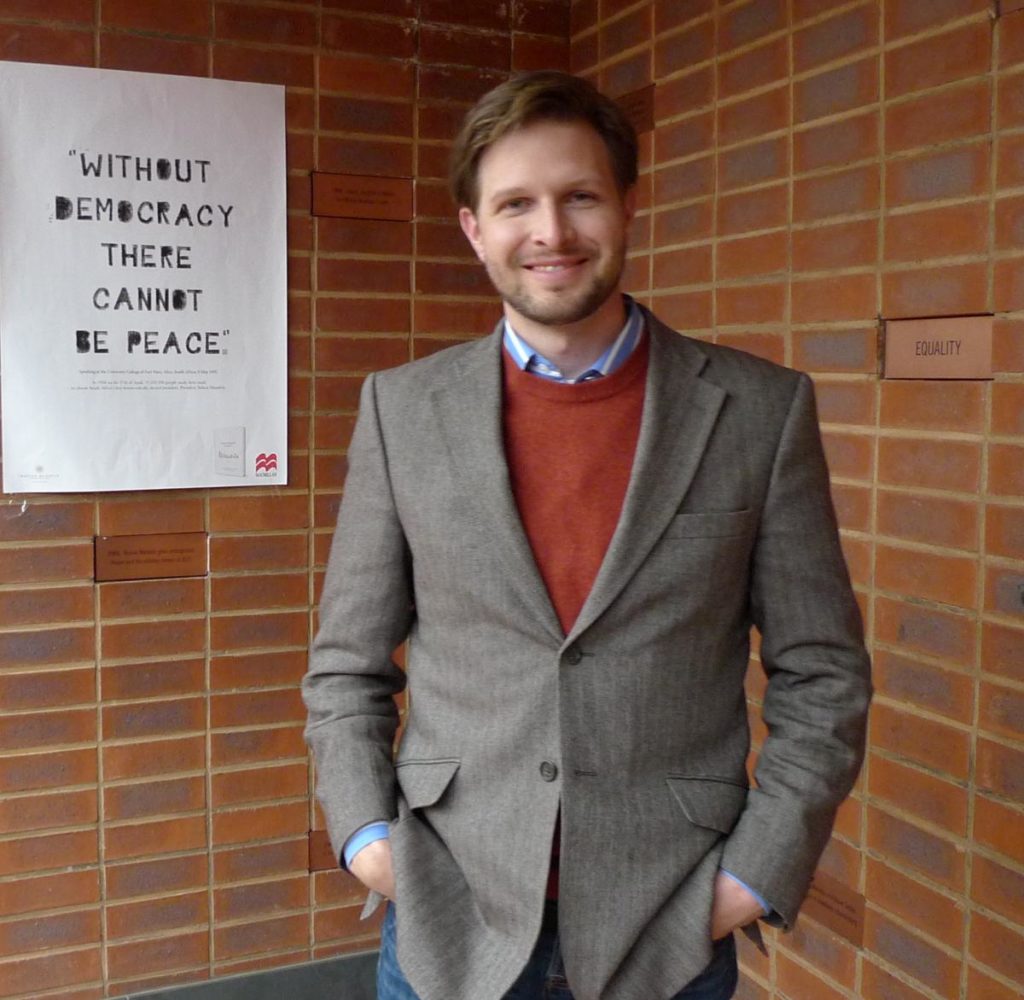
JONATHAN BROWN
Professor
Email: brownj2@georgetown.edu
Jonathan Brown is the Alwaleed bin Talal Chair of Islamic Civilization in the School of Foreign Service at Georgetown University, and he is the Director of the Alwaleed bin Talal Center for Muslim Christian Understanding. He received his BA in History from Georgetown University in 2000 and his doctorate in Near Eastern Languages and Civilizations from the University of Chicago in 2006. Dr. Brown has studied and conducted research in countries such as Egypt, Syria, Turkey, Morocco, Saudi Arabia, Yemen, South Africa, India, Indonesia, and Iran. His book publications include The Canonization of al-Bukhari and Muslim: The Formation and Function of the Sunni Hadith Canon (Brill, 2007); Hadith: Muhammad’s Legacy in the Medieval and Modern World (Oneworld, 2009; expanded edition 2017); Muhammad: A Very Short Introduction (Oxford University Press, 2011), which was selected for the National Endowment for the Humanities’ Bridging Cultures Muslim Journeys Bookshelf; Misquoting Muhammad: The Challenges and Choices of Interpreting the Prophet’s Legacy(Oneworld, 2014), which was named one of the top books on religion in 2014 by the Independent; and Slavery and Islam (Oneworld, forthcoming 2019). He has published articles in Hadith, Islamic law, Salafism, Sufism, Arabic lexical theory, and Pre-Islamic poetry. He is the editor-in-chief of the Oxford Encyclopedia of Islam and Law. Dr. Brown’s current research interests include Islamic legal reform and a translation of Sahih al-Bukhari. He is also the Director of Research at the Yaqeen Institute.
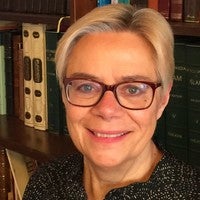
SUZANNE STETKEVYCH
Sultan Qaboos bin Said Professor of Arabic & Islamic Studies
Email: ss3179@georgetown.edu
Interests: The ritual, performance, and performative underpinnings of classical Arabic poetry in its literary-historical settings
A specialist in Classical Arabic Poetry, Suzanne Pinckney Stetkevych has published extensively in English and Arabic. Her research is primarily concerned with the ritual, performance and performative underpinnings of classical Arabic poetry in its literary-historical settings. In studies ranging from the pre-Islamic tribal and royal ode of the Jahiliyya, to the court praise odes of the Islamic caliphate, the devotional poetry of the Medieval Period and the Neo-Classical ode of the Nahdah and Colonial period, she engages ritual theory, rite of passage, gift exchange and sacrificial rituals to reveal the socio-economic role of the qasida, the ceremonial aspects of qasida performance as a courtly negotiation of status and legitimacy, and the spiritually and politically transformative role of madih nabawi (praise poems to the Prophet Mohammad). Her courses include Poetry and Empire: the Arabic Ode; Poetry as Performance; Pre-Islamic Poetry: Orality, Ritual and Performance; Theoretical Approaches to the Arabic Ode; Modern Arabic Poetry; and Classical Arabic Literary Texts. She is currently working on a project on the transformation of Arabic poetics and aesthetics from Classical to Post-Classical the two poetry diwans of the celebrated blind Syrian poet, Abu al-‘Ala’ al-Ma‘arri (d. 1058 CE).
ASSOCIATE PROFESSORS
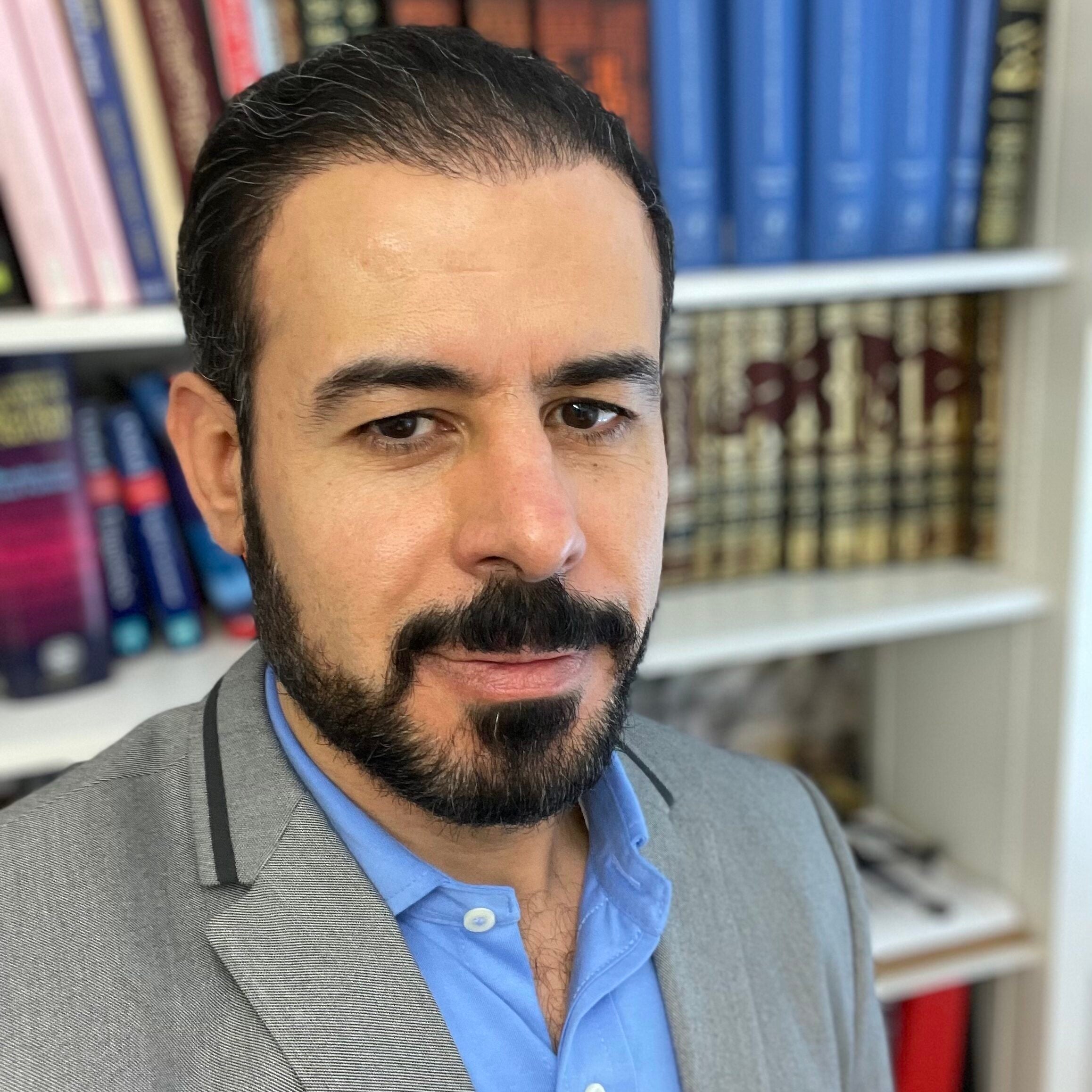
AHMAD ALQASSAS
Associate Professor, Director of Graduate Studies
Email: aa1453@georgetown.edu
Interests: Arabic syntax, morphosyntax, acquisition, diglossia/variation
Ahmad Alqassas (Ph.D., Linguistics, Indiana University-Bloomington) is a linguist with research interests in Arabic linguistics, Arabic comparative syntax, morphosyntax, acquisition, and diglossia/variation. Drawing on comparative data from dialectal and standard Arabic, his research investigates the principles and subconscious computations behind the perennial linguistic landscape shaped by the mental faculty of language. His research primarily investigates clausal architecture and structural dependencies in the major grammatical categories, including negation, tense/ mood/ aspect, polarity sensitivity, and coordination structures. His book publications include A Unified Theory of Polarity Sensitivity: Comparative Syntax of Arabic (Oxford University Press, 2021); and A Multi-locus Analysis of Arabic Negation: Micro-variation in Southern Levantine, Gulf and Standard Arabic (Edinburgh University Press, 2019). His research investigates the rich linguistic variation within Minimalist syntax. His research includes the morphosyntax of agreement morphology in the nominal domain, such as numeral phrases and definiteness, and their role at the syntax-morphology interface within Distributed Morphology. His interests include the applications of linguistic theory to second/heritage language acquisition. He also teaches courses on Arabic linguistic analysis, linguistics methodology, dialectology, sociolinguistics, language policies/politics and political discourse.
ELLIOTT COLLA

Associate Professor
website
Email: Elliott.Colla@georgetown.edu
Interests: The links between social movements and literary production
Elliott Colla is an associate professor of Arabic and Islamic Studies at Georgetown University. He is the author of Conflicted Antiquities: Egyptology, Egyptomania, Egyptian Modernity, and essays on modern Arab literature, culture and politics. He has translated works of contemporary Arabic literature, including Ibrahim Aslan’s novel, The Heron, Idris Ali’s Poor, Ibrahim al-Koni’s Gold Dust, and Rab‘i al-Madhoun’s The Lady from Tel Aviv.
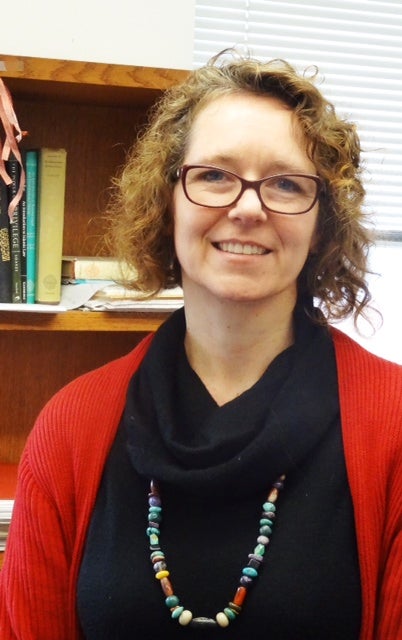
FELICITAS OPWIS
Associate Professor, Department Chair
Email: Felicitas.Opwis@georgetown.edu
Interests: The religious sciences of Islam and the historical, social, and political environment in which Islamic thought is articulated.
In her scholarly inquiries, Felicitas Opwis addresses the religious sciences of Islam and the historical, social, and political environment in which Islamic thought is articulated. Her main research field focuses on Islamic jurisprudence, and in particular how the formulation of Islamic legal theory is related to intellectual discourse in other fields of Muslim learning, and to the political and social environment. She investigates how Islamic jurisprudents tackle the perpetual dilemma of achieving legal change without changing the scriptural foundations of the law. Through close comparative analyses, she looks at how and why legal principles, such as public interest and juristic preference, change over time. Felicitas Opwis has published several articles and book chapters on questions of legal change in Islamic jurisprudence. These publications deal with the construction of authority within schools of law; the re-interpretation of particular legal principles; whether or not a “reformation” has occurred in Islamic law; and the development of the concept of public interest/maslaha. She is currently preparing a book manuscript on the development of the concept of mas?lah?a in Islamic legal theory from the 10th to the 15th century.
ASSISTANT PROFESSORS
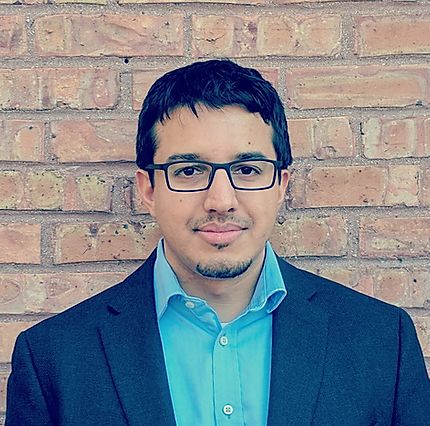
RODRIGO ADEM
Assistant Professor, Director of Undergraduate Studies
Email: ra1083@georgetown.edu
Interests: the urban development of medieval Syria (and Damascus in particular) as an entry point for the distinctive features of the medieval Middle Eastern city as an archive of literary and material culture, a site for the formation of regional, ethnic, and religious identities, and center for standardization of knowledge production and dissemination of norms and tastes.
Rodrigo Adem (Ph.D., Near Eastern Languages and Civilizations, The University of Chicago) is a historian of the premodern Middle East. As an intellectual historian, his research encompasses early Islamic thought in its diverse doctrinal manifestations and regional forms and is dedicated to an intimate engagement with the textual sources of “classical Islam,” with an emphasis on epistemology, hermeneutics, historiography, and the construction of scholarly authority. His current book project, tentatively titled Necessary Proof, examines scholarly dissatisfaction with traditional authority as a religious sensibility unique to early Islamic thought and explains the historical significance of the same in conversation with the history of philosophy, critical theory, and the sociology of knowledge. His courses include: Introduction to Islamic Civilization; Knowledge, Desire, and Power in Classical Islamic Thought; Advanced Readings in Classical Arabic & Islamic Thought; and Readings in Arabo-Islamic Historiography.
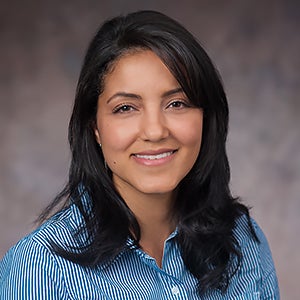
SARA OMAR
Assistant Professor
Email: smo52@georgetown.edu
Interests: Islamic intellectual history, the Qur’ān and its exegesis, Islamic Law, gender and sexuality, religious authority, and religion and violence.
Sara Omar received her Ph.D. from the Department of Near Eastern Languages and Civilizations at Harvard University. She recently completed a Postdoctoral Fellowship in Middle East Studies at the MacMillan Center at Yale University. She has received a number of fellowships including a Fullbright Fellowship in Syria where she conducted fieldwork on female religious authority in Damascus. Her work traces the legal and social genealogies governing words, concepts, and the practices that they encode. Much of her research explores the logic, contexts, and hierarchies that have shaped discourses of normativity over the first eight centuries of Islamic history, particularly as they relate to gendered patterns of power. Her current book project focuses on the genealogy of same-sex sexual practices in the formation of Muslim discourses. This monograph underscores insights that can be gained from studying same-sex sexual practices as a means of understanding the legal, ethical, and social genealogies that have authorized various practices and beliefs as authentically Islamic while also disqualifying and silencing others.
ASSOCIATE TEACHING PROFESSORS
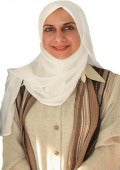
GHAYDA AL-ALI (On Leave)
Associate Teaching Professor
Email: ga411@georgetown.edu
Interests: News Discourse Analysis of Arabic print media and its interaction with the western media
Ghayda’s Ph. D. is in Sociolinguistics and Translation: English-Arabic-English. She is an Associate Teaching Professor in the Department of Arabic and Islamic Studies at Georgetown University. Her research interests lean heavily toward News Discourse Analysis of Arabic print media and its interaction with western media. She has a strong passion to improve communications and understanding between two disparate cultures of the Arab and the Western. She is the winner of the 2015 Georgetown ITEL Cohort Award and 2016 Doyle Faculty Cohort Award, and the 2017 CIBER Business Language Research and Teaching grants.
She is the author of:
– How Arab Journalists Translate English-Language Newspaper Headlines: Case Studies in Cross-Cultural Understanding, 2011
– The Translator of the Discourse and Power “الخطب و السطة”
– Hero or Terrorist? A comparative analysis of Arabic and Western Media Depictions of the Execution of Saddam and the Death of Zarqawi, 2013
-Villains, Victims, Labels and Euphemisms: An Analysis of Aljazeera Terror Terminology Variation by Event and Audience, 2015
– Arabic with Us, 2017
Elham Alzoubi
Associate Teaching Professor
Email: ea736@georgetown.edu
Elham Alzoubi is an associate teaching professor at the department of Arabic and Islamic Studies. She has a Ph.D. in Near Eastern Languages and Cultures and an MA in Linguistics from Indiana University-Bloomington. She has more than a decade of work experience that includes various roles in foreign language education at Indiana University, Earlham College, Qatar University, and the Department of State’s Foreign Service Institute. Her graduate and post-graduate experience has largely focused on teaching Arabic as a Foreign Language. All of her past experience involves teaching Arabic and its rich socio-cultural and humanities tradition and heritage. Her areas of interest also include Arabic idioms. She is the author of the book Idioms and Idiomatic Expressions in Levantine Arabic (new window), an ethnographic study of Arabic idioms with documentation and English translation of their rich, authentic socio-cultural context.
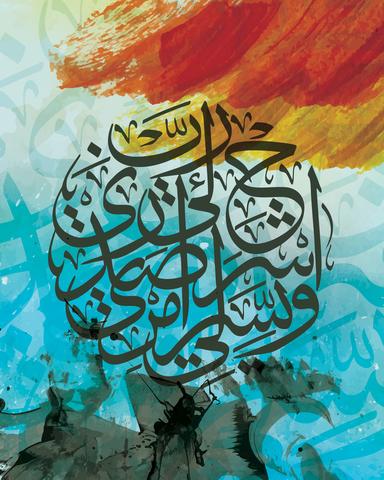
HANAA KILANY (On Leave)
Associate Teaching Professor
Email: hk229@georgetown.edu
ASSISTANT TEACHING PROFESSORS
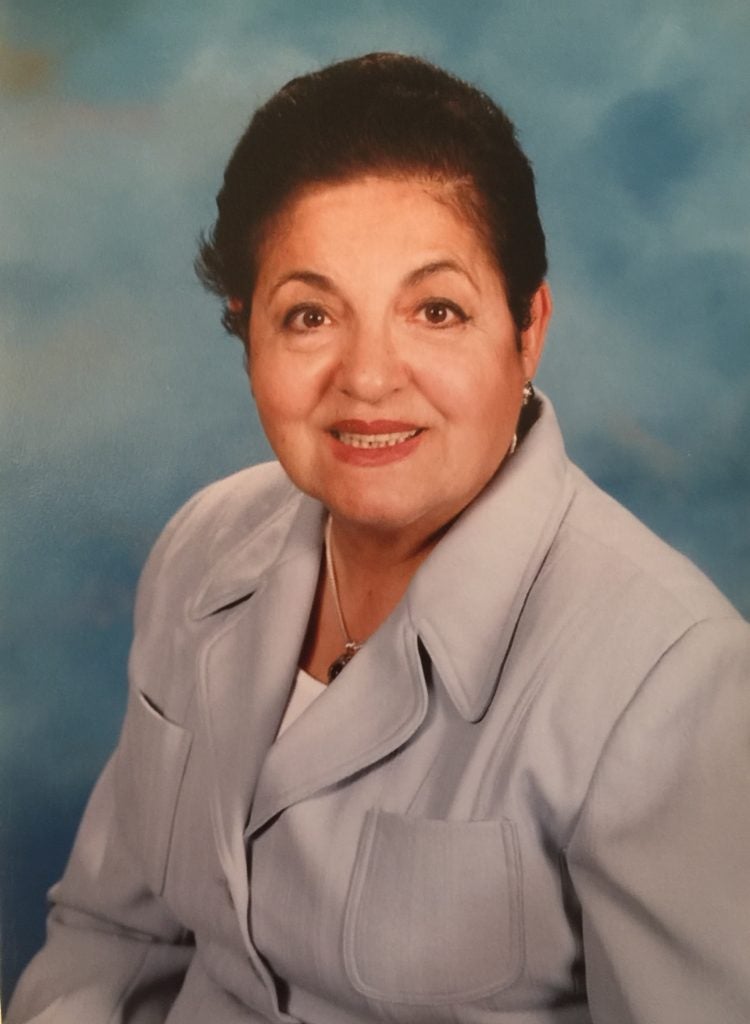
HUDA AL-MUFTI (On Leave)
Assistant Teaching Professor
Email: hwa2@georgetown.edu
Huda Al-Mufti has a BA in Arabic Language and Literature (with honors) from The Arabic University of Beirut- Lebanon 1971-1975. Huda came to the USA in 1982, and enrolled in Florida International University (FIU) where she received a degree in Education, Reading Specialist from the FIU School OF Education in 1985. Following her MA, she joined the Ph.D. program in Arabic at Georgetown University in D.C. from 1985-1990.. She has over 30 years of experience teaching all levels of Arabic. Her teaching experience started at the State of Kuwait and continued at Florida International University, the Arabic school in the Washington D.C area, and Georgetown University. She did translation work from English to Arabic and wrote many articles in the field of Education. Languages: Arabic (speak, read, write) Farsi (read, write)
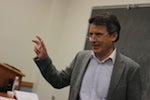
BELKACEM BACCOUCHE
Assistant Teaching Professor
Email: baccoucb@georgetown.edu
Interests: Arabic Literature & Interpretation
After spending two years at the University of Baghdad, Iraq, where he majored in English and minored in Arabic, Belkacem Baccouche transferred to Kent State University where he received his BA in English. He then spent two years there working on an MA in Comparative Literature. He also pursued graduate work here at Georgetown by taking courses in the English department. His teaching experience started in Peace Corps training programs and continued at Kent State where he was a graduate assistant teaching French to PhD candidates in the Humanities and Sciences. At the Middle East Institute, he has taught all levels of Arabic, as well as other courses such as Tales from the Arabian Nights, Short Stories from North Africa, Arabic Composition, Readings in the Social Sciences, and Naguib Mahfouz in Film. At Georgetown, he has taught Business Arabic, Arabic Textual Analysis and Interpretation, and Intermediate and Advanced Arabic. Since 1993, he has been associated with the Center for Contemporary Arab Studies, teaching Intermediate and Advanced Arabic, as well as coordinating the MAAS Arabic Language program. He is committed to doing his best to bring Arabic closer to his students while maintaining high standards. He has taken part in many conferences and workshops on language acquisition. He co-wrote Introduction to Modern Standard Arabic Conversation, Conversations in Modern Standard Arabic, and Business Arabic. He edited the Arabic text, and translated it into English: ‘Asir: Turath wa Hadara (‘Asir: Heritage and Civilization) by Dr. Wahbi al-Hariri. He did extensive translation work from English to Arabic, and from Arabic or French to English, of materials dealing with economics, foreign trade, development, Int’l affairs, history, and culture. From 1994-1999 he served as Director of the Georgetown Summer Arabic Institute. While a student at Kent State, he did some writing and reporting for the Voice of America, and acted in French and English plays. He enjoys teaching, reading, music, poetry, and the cinema.
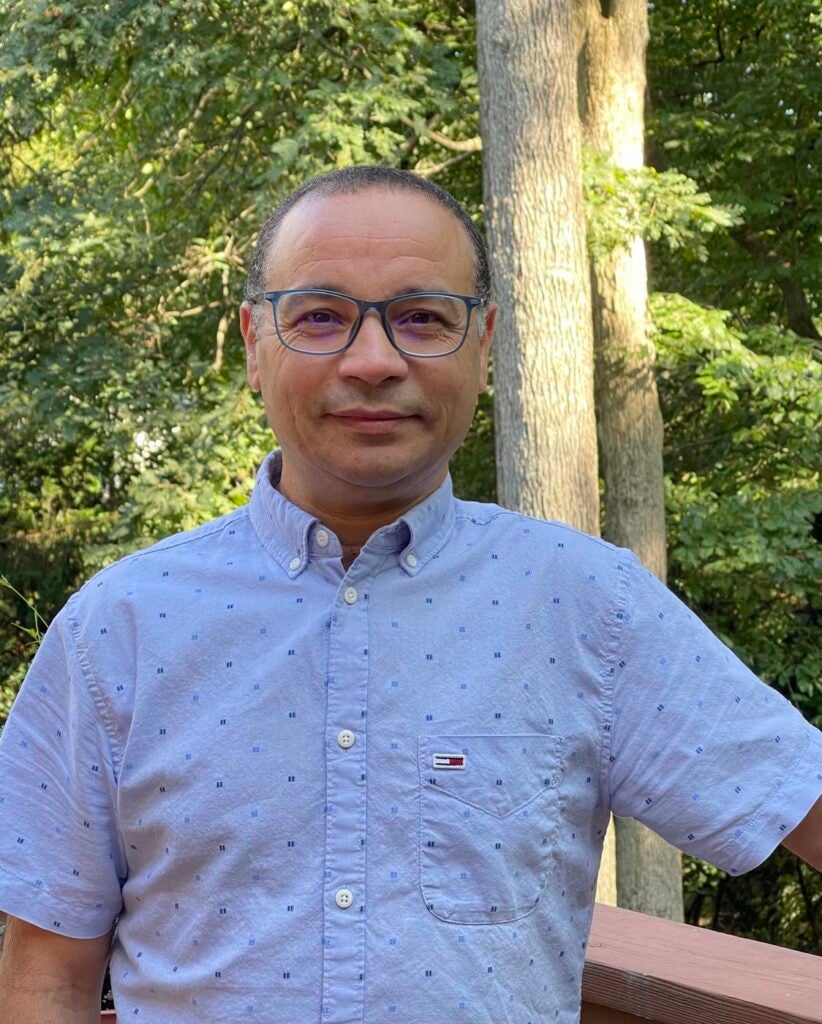
KHALIL DERBEL
Assistant Teaching Professor
Email: kd860@georgetown.edu
Khalil Derbel joined the Arabic language faculty at The Georgetown University in the fall semester of 2022 as Teaching Instructor in Arabic. He comes with a long and varied vita in higher education and also in the realm of diplomacy. For 16 years, he trained Foreign Service Officers (DoS) and Foreign Area Officers (DoD) at the Foreign Service Institute’s Arabic Field School, Tunis, Tunisia. In the academic year 2021-22, he joined the Arabic faculty of George Washington University where he taught Arabic classes at various proficiency levels and taught a course in Media Arabic. Previously, he designed and taught a Tunisian Arabic course at the Bourguiba Institute for Modern Languages, the University of Tunis (summer and semester formats), taught Tunisian Arabic to Peace Corps volunteers and to employees of a Swedish development aid organization based in Tunis. In language proficiency assessment, Mr. Derbel is well-versed in the ILR and ACTFL assessment guidelines and his expertise served both the foreign service community and various cohorts of Critical Language Scholarship students.
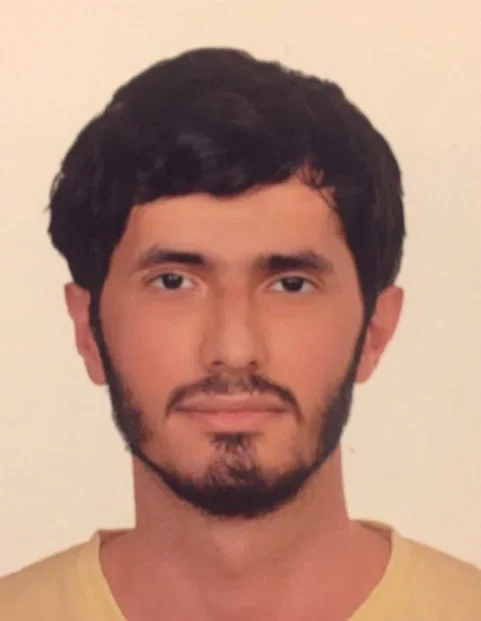
MOHAMMAD FAKHREDDINE
Assistant Teaching Professor
Email: mjf280@georgetown.edu
Mohammad Fakhreddine is an Assistant Teaching Professor of Arabic with an interest in Arabic literature, specifically poetry and literary criticism. He earned his BA and MA in English Literature from the American University of Beirut (AUB) and his PhD in Arabic and Islamic Studies from Georgetown University. His Master’s Thesis focuses on Modern Arabic Poetry, more specifically the stylistic and technical innovations of the Free Verse Movement in the 20th century. His PhD dissertation provides an in-depth analysis of the many centuries of Arabic literary criticism and its exclusion of colloquial poetry. Mohammad’s areas of interest include Classical and Modern Arabic poetry, poetic stylistics and metrics, and Arabic language and identity.
EMERITI FACULTY
TERRENCE POTTER
Emeritus Teaching Professor
Email: Terrence.Potter@georgetown.edu
Terrence M. Potter is a teaching professor emeritus in the Department of Arabic and Islamic Studies. He taught Modern Standard Arabic for ten years at the US Military Academy and for 14 years at Georgetown University. He received his Ph.D. in Applied Linguistics from the Department of Linguistics at Georgetown. He is a member of the Modern Language Association and served on its general linguistics committee. His research interests have included applied linguistics for Arabic, the sociolinguistics of address in spoken Arabic, the teaching and learning of Arabic as a second language, and Arabic onomastics.
KARIN RYDING
Professor Emeritus
Email: rydingk@georgetown.edu
Karin Christina Ryding is professor emerita of Arabic linguistics in the Department of Arabic and Islamic Studies at Georgetown University. She holds a B.A. from Middlebury College, an M.A. from The American University of Beirut, and a Ph.D. from Georgetown University. From 1980-86, she was head of Arabic training at the Foreign Service Institute of the U.S. State Department. From 1995-98 she served as Dean of Interdisciplinary Programs at Georgetown. From 1996-2002, she was a member of the Georgetown University Board of Governors. For ten years she was chair of the Department of Arabic and Islamic Studies at Georgetown, and from 1995-2008, she held the Sultan Qaboos bin Said Professorship of Arabic. Principal publications include “Arabic: A Linguistic Introduction” (Cambridge University Press 2014), “Teaching and Learning Arabic as a Foreign Language: A Guide for Teachers” (Georgetown University Press 2013), “A Reference Grammar of Modern Standard Arabic” (Cambridge University Press 2005), Formal Spoken Arabic: Basic Course (Georgetown University Press,1990, second edition, 2005), Formal Spoken Arabic: FAST Course (Georgetown University Press, 1993, reprint, 2004). Ryding was president of the American Association of Teachers of Arabic (AATA), from 2007-2008. From 2005-07, she was the principal investigator and project adviser to the Arabic Language Flagship Project at Georgetown, a full-year, intensive Arabic program to bring students from the intermediate to advanced or superior level of proficiency. Ryding was on the Executive Committee Association of Departments of Foreign Languages (ADFL) from 1995-98, and on the Modern Language Association’s Ad-Hoc Committee for Foreign Languages from 2004-06. From 2008-2013 she served on the Executive Council of the MLA. She currently sits on the Arabic language advisory board of AMIDEAST Education Abroad Programs, and on the Board of Directors of Georgetown University Press. In 2008, she received the Lifetime Achievement Award from AATA as well as the Distinguished Service Award from the Faculty of Languages and Linguistics of Georgetown University.
AFFILIATED FACULTY
Professors
John Esposito, Ph.D. Temple University (Center for Muslim-Christian Understanding, SFS) [Retired]
Yvonne Haddad, Ph.D. Hartford Seminary (Center for Muslim-Christian Understanding, SFS) [Retired]
Paul Heck, Ph.D. University of Chicago (Department of Theology)
Judith Tucker, Ph.D. Harvard University (Department of History) [Retired]
John Voll, Ph.D. Harvard University (Department of History) [Retired]
Associate Professors
Osama Abi-Mershed, Ph.D. Georgetown University (Department of History)
Rochelle Davis, Ph.D. University of Michigan (Center for Contemporary Arab Studies, SFS)
Amira El-Zein, Ph.D. Georgetown University (SFS-Q) 2019-2020
Daniel Madigan, Ph.D. Columbia University (Department of Theology) [Emeritus]
Visiting Researchers
Anwar A.J.A Alsaad, Ph.D.
Assistant Professor of Modern Literary Criticism, Department of Arabic Language & Literature, Kuwait University
Lubna Muḥammad I. al-Shanquitiy
Department of General Courses, Faculty of Arts and Humanities, King Abdul-Aziz University, Jeddah-Saudi Arabia
Mustafa Muhammad T. BinMayaba
Department of Arabic Language and Literature, Faculty of Arts and Humanities, King Abdul-Aziz University, Jeddah-Saudi Arabia
